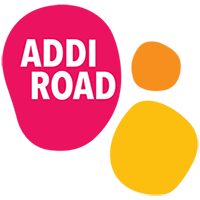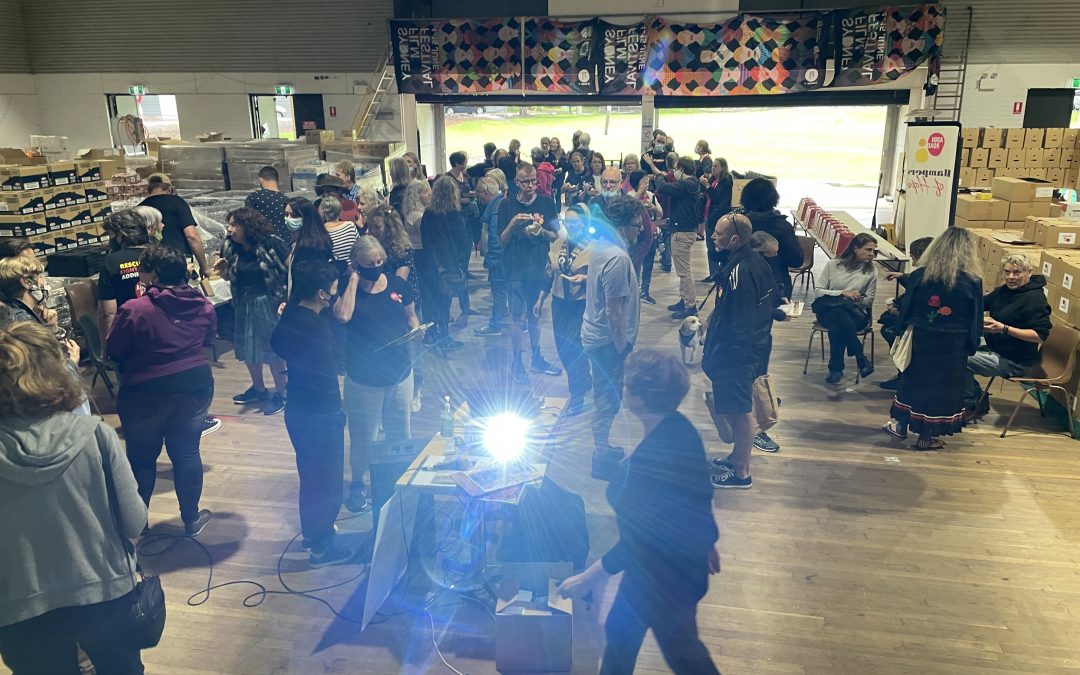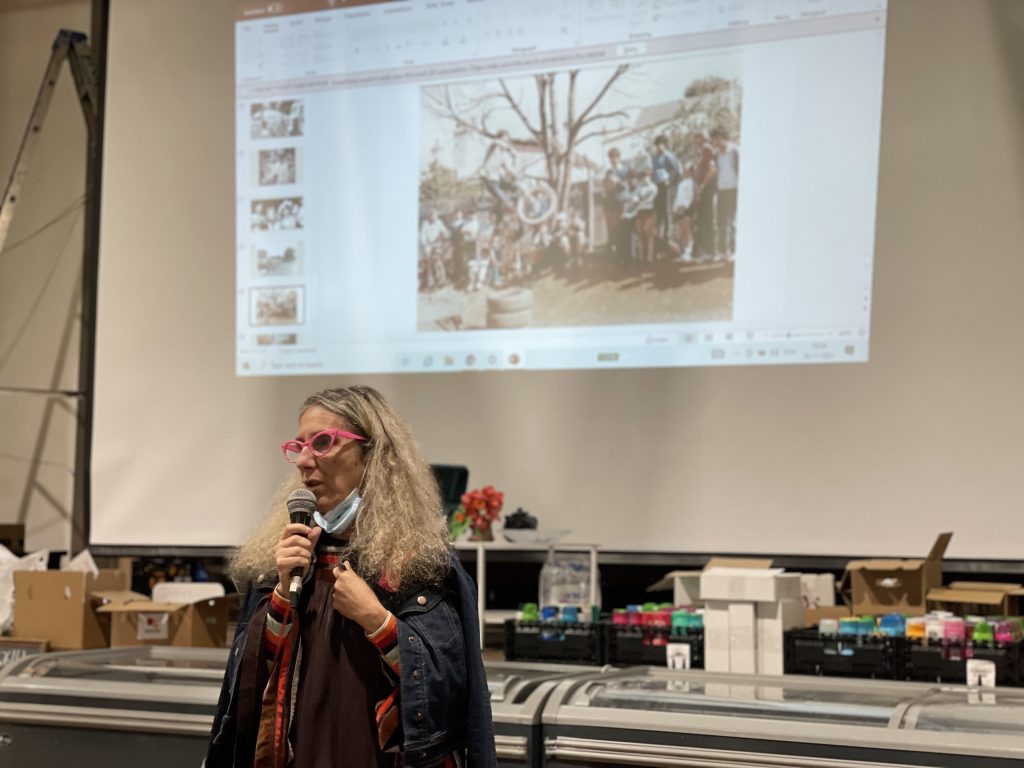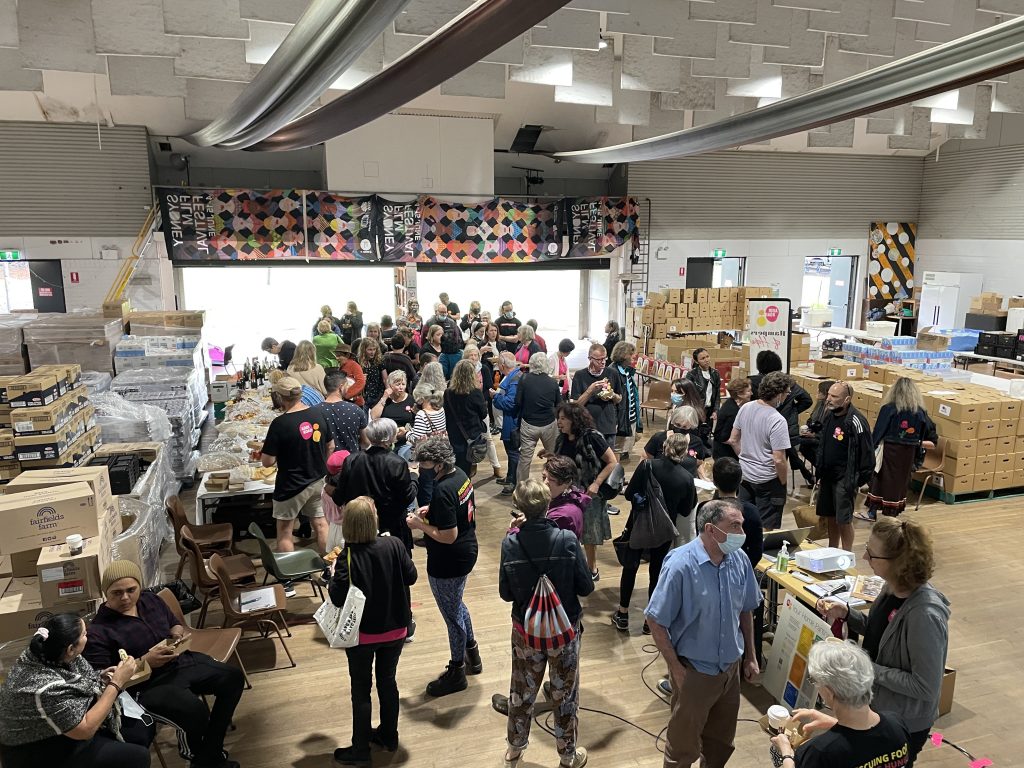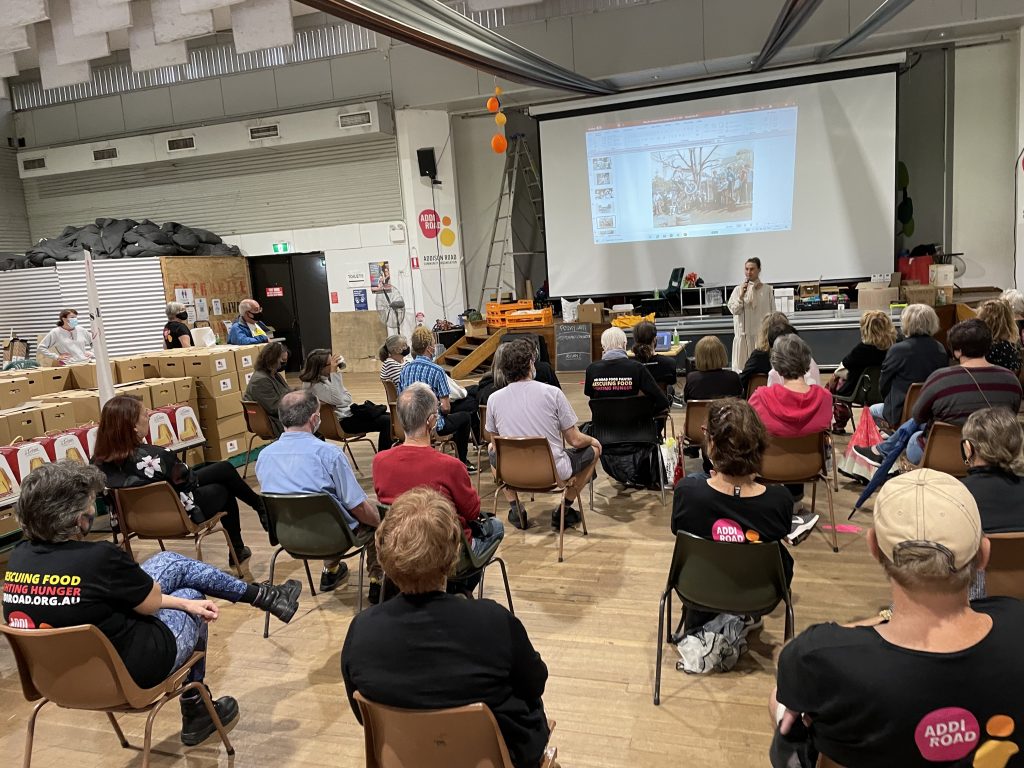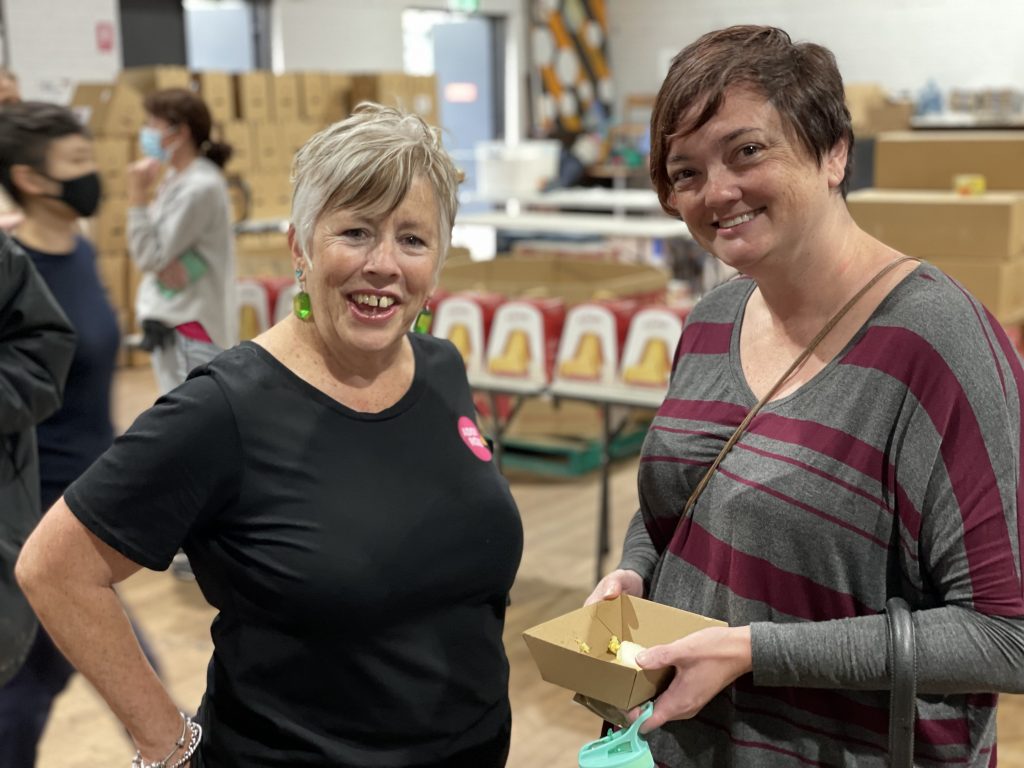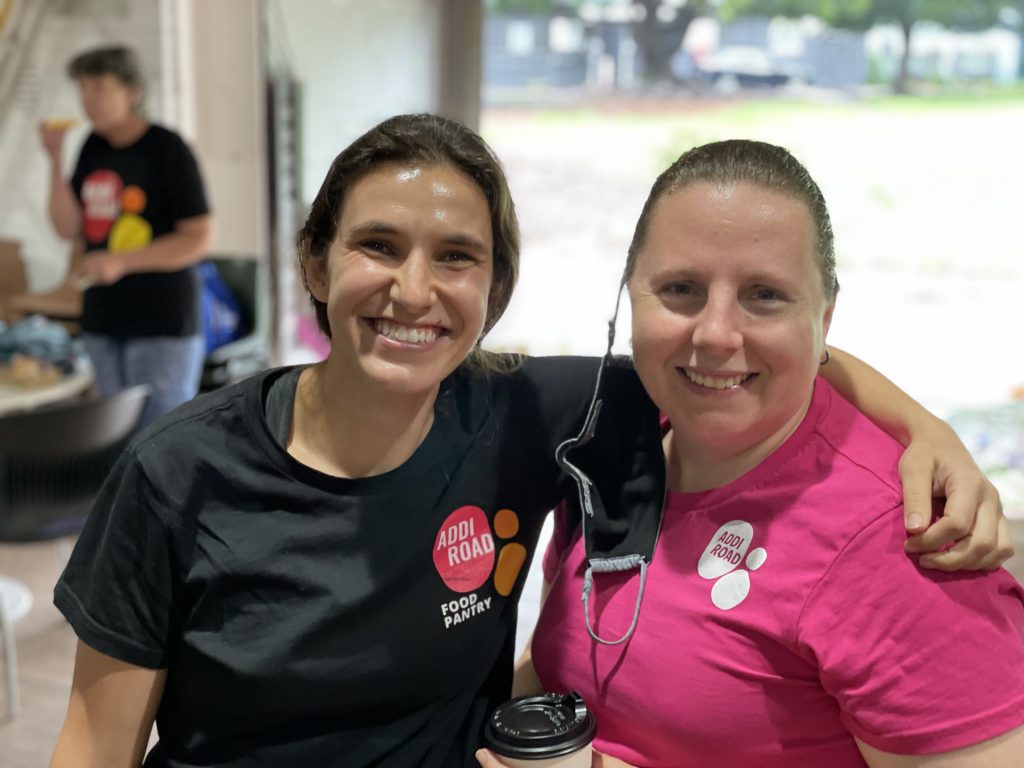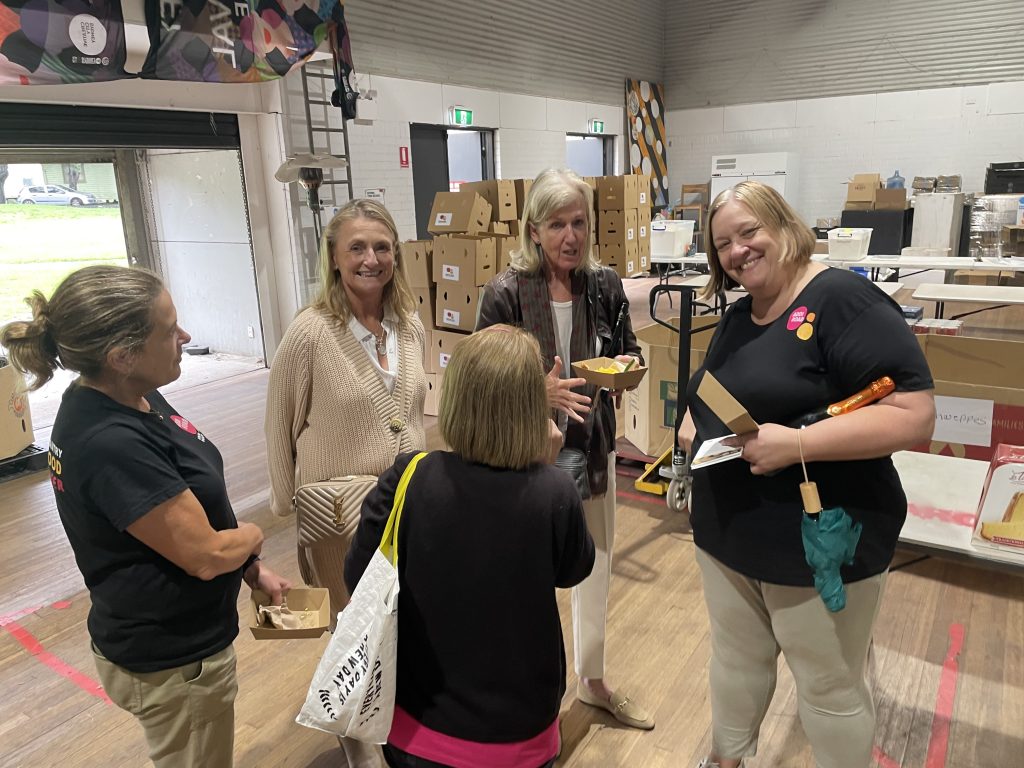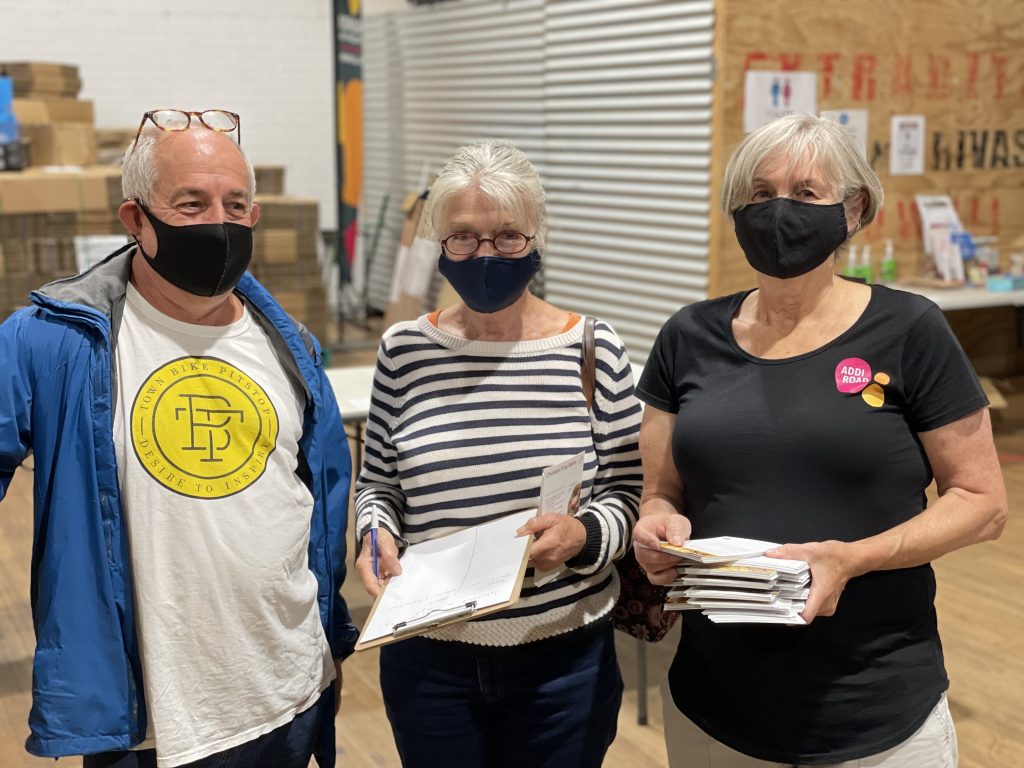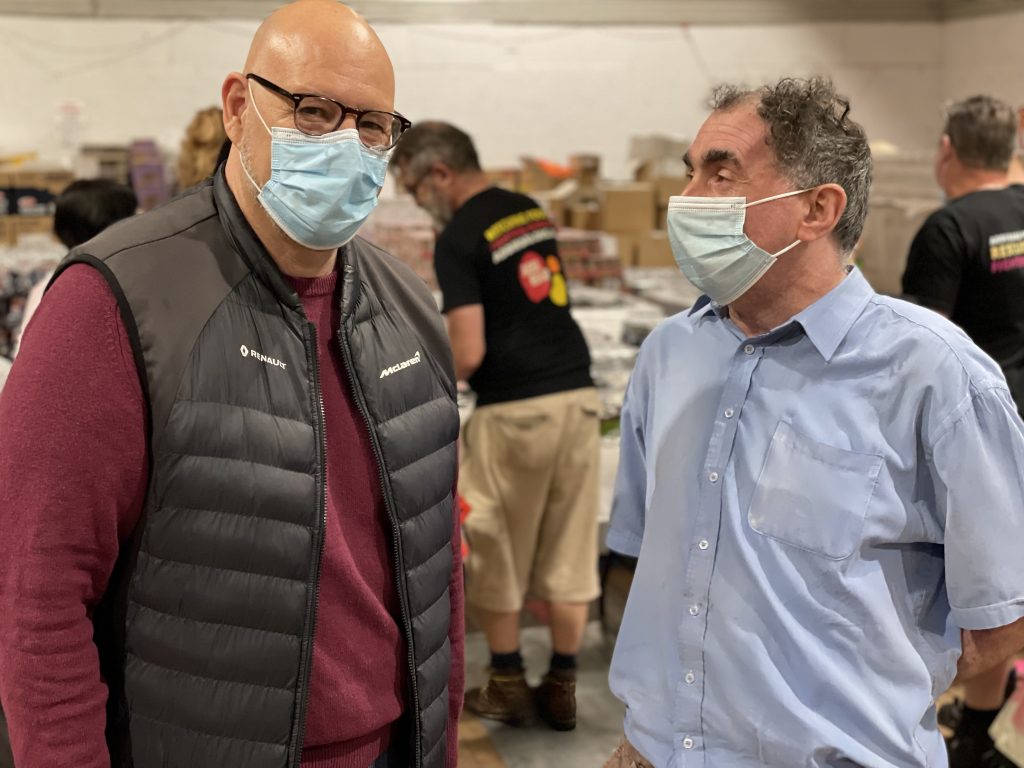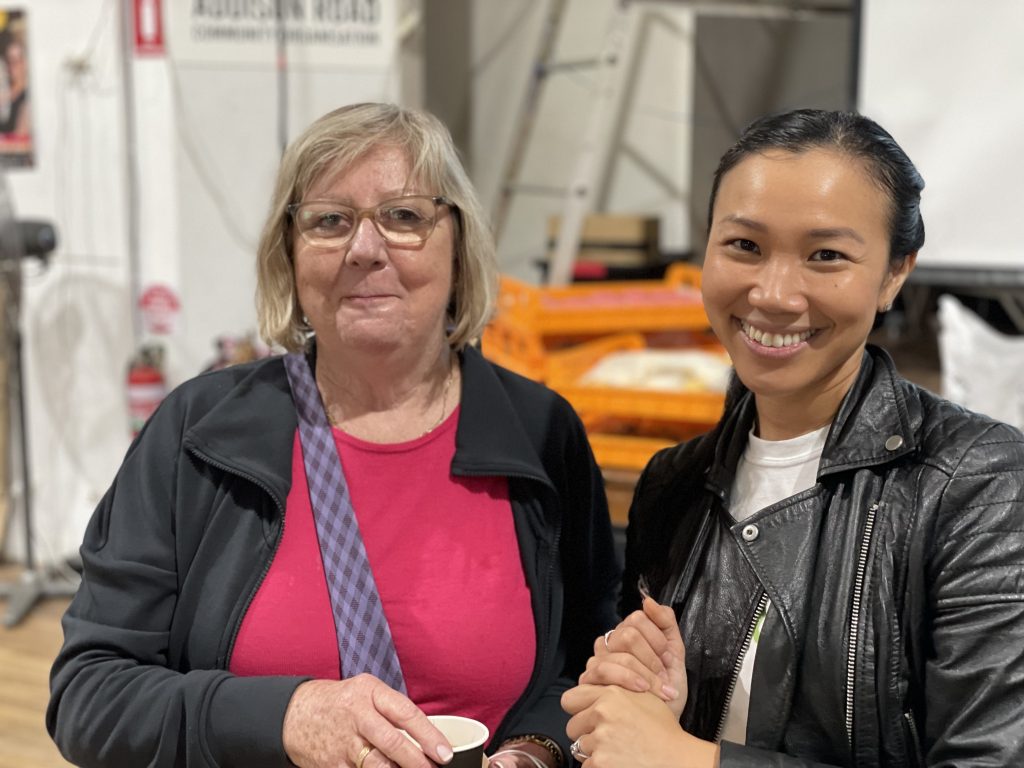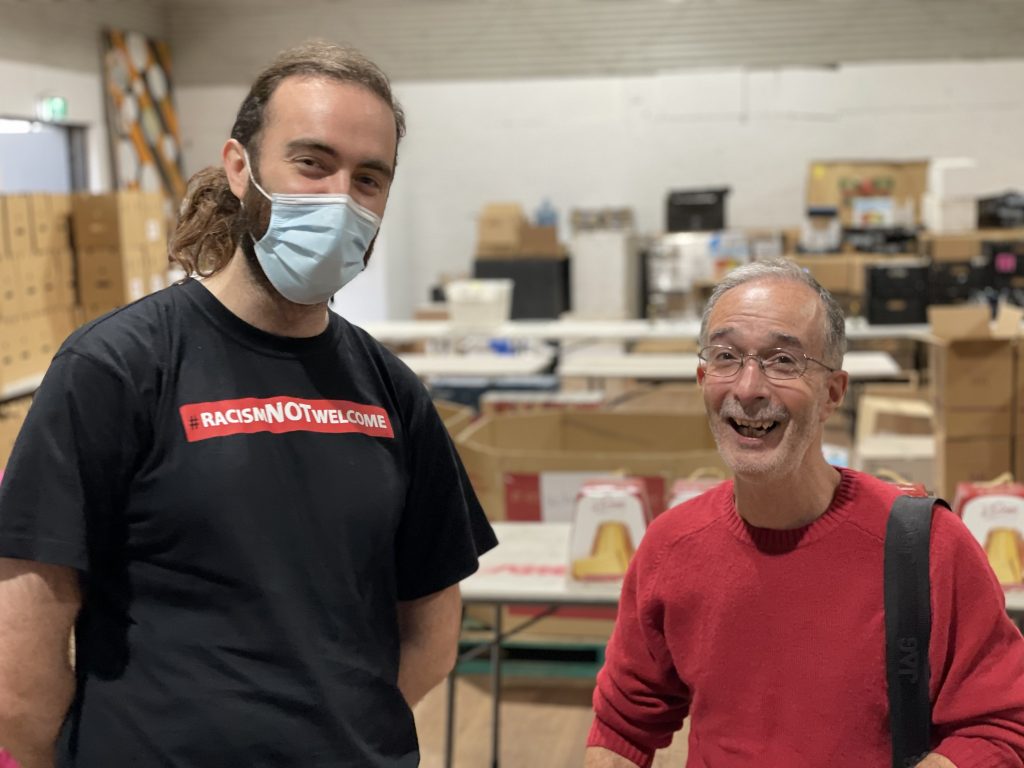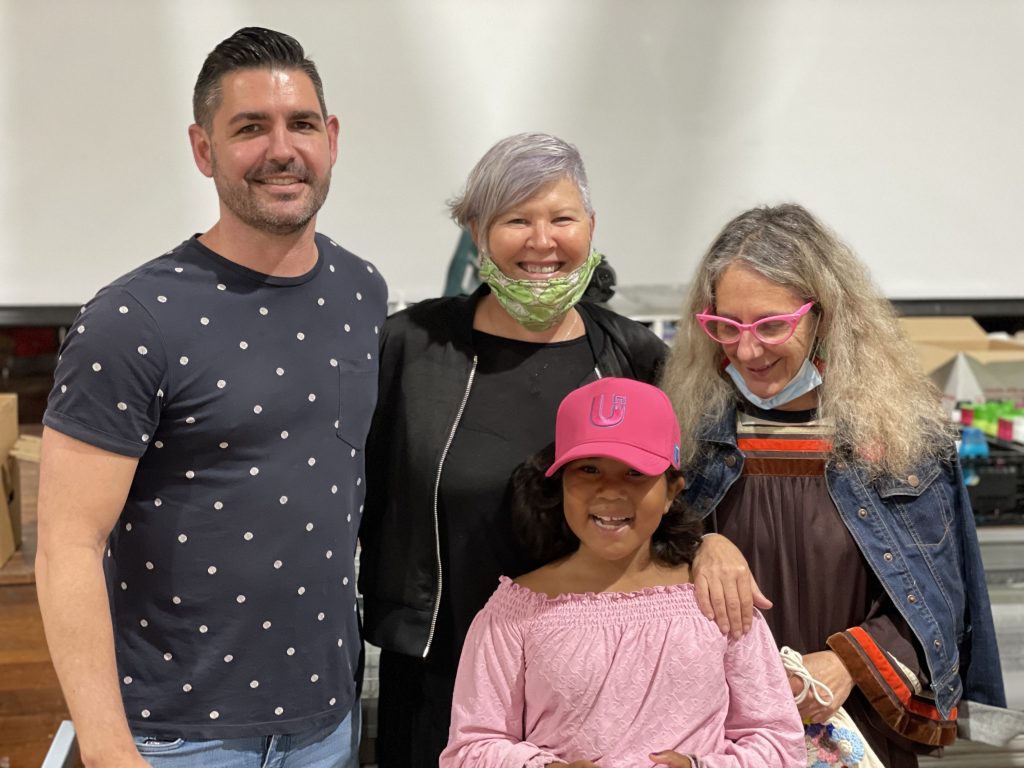Morning tea for all our volunteers. Of course, it is pelting down raining again. So, the annual event is held under cover, appropriately enough inside our Gumbramorra Hall, better-known these days for having been converted into the Addi Road Food Relief Hub.
The volunteers know this place inside out. Pallets and hamper boxes are everywhere around us… shrink-wrapped cases of canned tomatoes, bags of flour and rice, cardboard tubs of mandarins, potatoes and apples, packets of biscuits and noodles, bottles of shampoo, children’s books and toys, stacks of tinsel and wrapping paper.
Some of this marks the beginnings of Christmas and what will be our last big push for the year, the #HampersofHope campaign where we spend a full week in mid-December putting together and distributing one-off gift hampers to make people feel special.
As the hall fills up, Kohu and her team from Little Catering put out sandwiches and treats along with biodegradable plates and napkins. This time it is the volunteers who are on the receiving end of some food and a few timely treats. It’s the one morning of the year where the Addison Road Community Organisation can say thank you to all the people who make this place what it is.
At its peak during lockdown, we were running 30 shifts a week, mornings and afternoons, with over 300 volunteers involved in both our Addi Road Food Relief Hub and Addi Road Food Pantry Marrickville, as well our sister Addi Road Food Pantry store in Camperdown and Addi Road’s Mobile Outreach Pantry. Not to mention the volunteer drivers who pitched in to deliver hampers to those struggling when the lockdowns were at their toughest. It’s our very own army of good will and community consciousness.
Addi Road CEO Rosanna Barbero told everyone, “What really holds this place together is all of you. Your sweat equity, your commitment, your passion is what keeps this place going. Your humour, your skills, your absolute love and solidarity to make the work that much more special. When I look around, I feel like I am standing in a galaxy of stars.”
Addi Road Food Pantry Manager Damien Moore may have been over-inspired by that feeling earlier, testing out the vocal PA with a brief rendition of ‘Blue Moon’ to kick off the day. Due to the inclement weather, our Program Manager Mina Bui Jones then gave a ‘virtual’ guided tour of the grounds, flicking through slides to show what an amazing history the place has.
Beginning with its life as a turpentine and ironbark forest with a creek running through it, the area an excellent hunting ground for the Gadigal people. Later, the fact it was seasonal wetland made the area difficult to build on as Sydney grew quickly. When the army finally bought the land in 1913, they put the creek that still flows underground into stormwater piping – unsurprisingly known now as Buried Creek. The World War One army camp, its horse and gun carriage buildings, along with more buildings assembled by the military in World War Two are still in use today.
Mina explained how local residents, environmentalists, and a range of ethnic welfare associations and multicultural community groups came together to stake a claim on the place when the military finally left in 1976. Marrickville was by then a semi-industrial suburb. Its cheap rents had attracted labourers and migrants seeking out the plentiful work in an area. And it was these people that banded together and forge what became known as the Addison Road Community Centre, a history that marked down Addi Road as the true birthplace of what became known as ‘multiculturalism’ in Australia.
It was both a tremendous gift and a huge responsibility for the Addison Road Community Organisation as there was no endowment or trust fund for the centre’s upkeep. With so many beautiful but fragile heritage building left over from the two world wars, and around 170 trees on the nine-acre site to attend to – as well a wetlands foundation that still causes all kinds of structural issues – it has been a massive undertaking to sustain and an ongoing testament to community love and involvement.
Mina’s talk summed all this up and showed how just much we have inherited from the multicultural and community vision that birthed Addi Road in 1976 – as well how deeply this history continues to guide us today. It was a great way to appreciate how rooted we are in the world around us… locally, historically, politically, and even spiritually (or at least ‘naturally’).
CEO Rosanna Barbero could relate to all this history herself as “the daughter of migrants”. As did Addi Road Board Member Dina Petrakis, who spoke of her own work with Settlement Services International (SSI) “helping refugees and asylum seekers who are entrepreneurial”. Dina looked around the room at all the volunteers gathered and acknowledged the continuity and connections they represented as part of this history. “You work with respect and kindness every day. You give people the ability to live with dignity. And I must tell you, your work does not go unnoticed.”
Addi Road Volunteer Manager Susan Conyers has been a lynch pin for all of that thinking and vision. She talked about “the extra mile” so many volunteers had gone in this last year, especially during lockdown. How when people could not make it in due to travel restrictions, “many of you did extra shifts day after day in what was a fairly stressful time for everyone.” For Susan, the volunteer drivers held a special place in her heart, with many of her contacts and relationships conducted entirely by text and phone conversations. “I was helped by Mary and Elena, without whom I’d have gone insane! They really made a difference.” Susan wrapped up quickly and modestly, “Anyway, you don’t want to have us blah-ing away all the time” and handed over the microphone to a few volunteers.
Judith from our Addi Road Food Pantry Camperdown store stepped up to speak about her work there and how our sister pantry “punches way above its weight”. Housed below the Common Ground Sydney apartments run by Mission Australia, Addi Road Food Pantry Camperdown serves a vulnerable and sensitive cohort living in the 104 apartments there. Judith spoke of an extra element to the pantry services that is perhaps its most precious quality, “gaining and keeping trust with people. They share the details of their lives with us.” She acknowledged too how Libby and Katie have run the pantry with that trust in mind, inspiring all the volunteers to appreciate how they are “at the heart of a physical and emotional centre that is quite unusual”.
Helen, Team Leader at the Addi Road Food Relief Hub on Thursday and Friday mornings has been a force of support and organisation in what is a vast undertaking, with hundreds and hundreds of hampers going out every day to feed some 8,000 people each month. But like so many of the creative and committed people we work with, Helen has gone that one step further with her fellow volunteers Phil and Robyn to develop the ‘Let’s Get Cooking’ project that includes a series of recipe cards and a Home Pantry List. As Helen explained, “to cook nutritious meals you need certain basics in your pantry to make good use of the food you are getting.” She spoke about “recognising that a lot of customers lacked cooking skills and an understanding of nutrition.” Helen also alluded to issues like “inter-generational disadvantage, trauma and poverty” as well as people with mental health issues. “All these very difficult and complex lives. People who have not had a chance to pick up the skills to feed themselves and their families.”
Thus ‘Let’s Get Cooking’. Beginning with 15 very simple recipes and ingredients commonly available. Recipes that Helen said were also conscious of people’s limits in other ways, making use of only the most minimal number of cooking pots. Next year she spoke of plans for cooking demonstrations outside the Addi Road Food Pantry. Followed by cooking classes, and sometime amid all that a complete Addi Road ‘Let’s Get Cooking’ recipe book. “It’s ambitious,” Helen admitted. “But we’re taking our time.” Her working partner on the project, Phil, stepped up to the microphone to add a few more words, mostly pointing out how much their plans connect to “making people feel comfortable. It’s not about people’s inability to cook, it’s more about helping to make things easy.”
Matthew, a volunteer driver, spoke last, keeping it short and sweet. He talked about coming to the Addi Road Food Relief Hub and making his deliveries during lockdown. And said that “it was not just about people being hungry, so many people had no human contact. They just needed a conversation. And they were so happy to know that someone behind the scenes was working for them, caring for them, remembering that they were there. The experience of doing the deliveries has been more beneficial for me than anything I did for those people. It was an absolute honour.”
It was a good way to declare our morning tea celebration well and truly open. Our volunteers gathered over food and in conversation. A community with a history. All for one, and one for all.
